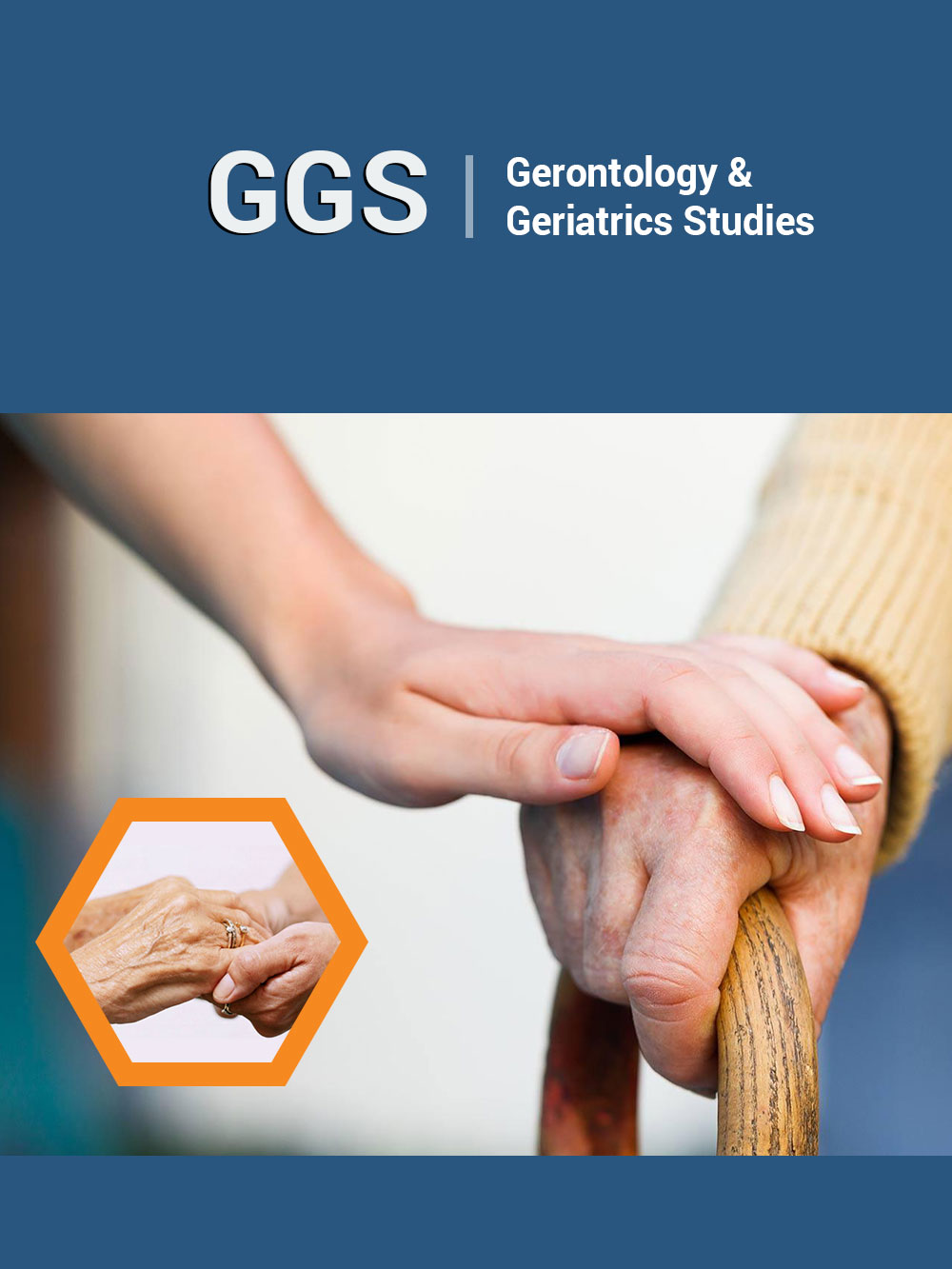- Submissions

Abstract
Gerontology & Geriatrics Studies
The Aging Brain: Recent Research and Concepts
-
Open or Close Vinod Nikhra*
Vrije Universiteit Amsterdam, Netherlands
*Corresponding author: Vinod Nikhra, Senior Chief Medical Officer and Teaching faculty, Hindu Rao Hospital, A public sector thousand-bed multi specialty Hospital, India
Submission: October 23, 2017; Published: December 05, 2017

ISSN: 2578-0093Volume1 Issue3
Abstract
Overview-neuro cognitive aging: Among all body organs, the aging of human brain is most incapacitating with its fallouts on quality of life, general health and psychosocial implications. There are progressive aging changes in the brain with increasing chronological age. However, at the individual level rate and types of changes are variable. The aging of brain entails several structural, bio-chemical and functional changes in the brain as well as various cognitive changes. The changes that may affect cognition and behavior occur at the molecular, intracellular, intercellular and neuronal tissue levels. Further, as suggested by the research in animal models, with aging there are distinct changes in the expression of genes at the neuronal level. In fact, aging is a major risk factor for the common neurodegenerative diseases, which include mild cognitive impairment (MCI), Alzheimer’s disease (AD) and Parkinson’s disease (PD).
Morphological alterations: As a person gets older, changes occur in the brain. Certain parts of the brain shrink, especially those related to memory and learning, and other complex cognitive activities. The injury due to reactive oxygen species (ROS) at micro-level and ensuing inflammation and degeneration compromise the neuronal ability to function, affecting the three important processes: communication, metabolism and repair/ regeneration. The other types of brain cells, called glial cells, which play various critical roles apart from supporting neurons also suffer changes due to aging process. Blood circulation in the brain decreases due to multiplicity of factors, including changes in cerebral vasculature, and is a likely cause of cognitive decline. The human brain consumes about 20 percent of the body’s oxygen, and the micro- and mini-vascular disturbances (mini-strokes) are common with aging arteries, and cause a cumulative and progressive damage.
The cognitive impairment: The cognitive abilities change throughout life, first as a result of brain maturation and later with aging of brain cells and their multitudes of complex interconnections. As people age, their movements and reflexes slow and the hearing and vision weaken. An important issue is how normal brain aging transitions to pathological aging, giving rise to neurodegenerative disorders. The toxic protein aggregates have been identified as potential contributory factors, including amyloid beta-protein in AD, tau in front temporal dementia, and Lewy bodies in PD. But, despite dementia and other neurodegenerative disorders associated with aging, the advanced imaging techniques have revealed that even into late seventies, the brain is able to regenerate and produce new neurons, and restructure complex neuronal circuits. Thus, a chance of regeneration and repair exists even in the aging brain.
Measures to retard the cognitive aging: The level of education and lifetime of intellectual effort, which improve cognitive skills, seem to protect brain against aging as well. The brain cells can grow and regenerate and the learning can improve throughout life. Though the aging is not genetically programmed, genes influence the aging of brain in multiple ways. The CETP gene is important in this regard and its I405V variant may influence general cognitive function and pathogenesis of AD. The gene expression, in turn, is influenced by factors like a healthy lifestyle, exercise, dietary and alcohol intake, and mental activity. The calorie restriction (CR) and CRAN appear to have a positive impact on cognitive function and aging. A better understanding of the aging of brain can be viewed as a key to an improved quality of life in a world where people will live longer in near future.
Keywords: Aging brain; Cognitive reserve; Neuronal aging; Neurotransmitters; Essential cognitive decline; Neurodegenerative disorders; Mild cognitive impairment; Alzheimer’s disease; Front temporal dementia; Parkinson’s disease; Cognitive protection; Reactive oxygen species; Calorie restriction; CRAN
 a Creative Commons Attribution 4.0 International License. Based on a work at www.crimsonpublishers.com.
Best viewed in
a Creative Commons Attribution 4.0 International License. Based on a work at www.crimsonpublishers.com.
Best viewed in 







.jpg)






























 Editorial Board Registrations
Editorial Board Registrations Submit your Article
Submit your Article Refer a Friend
Refer a Friend Advertise With Us
Advertise With Us
.jpg)






.jpg)














.bmp)
.jpg)
.png)
.jpg)










.jpg)






.png)

.png)



.png)






